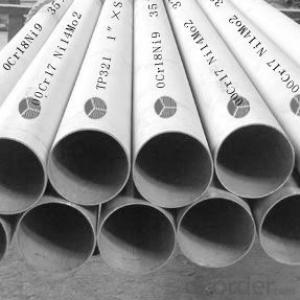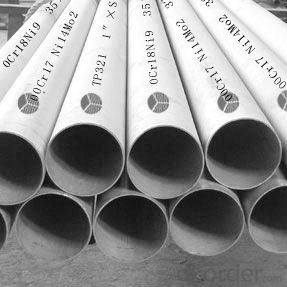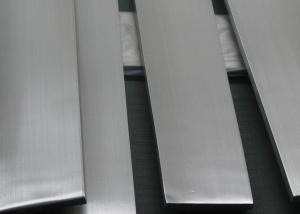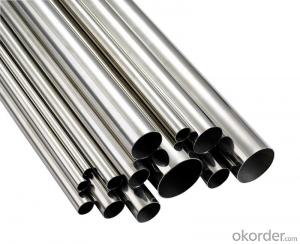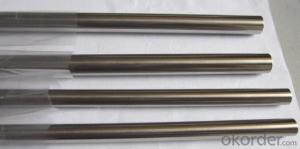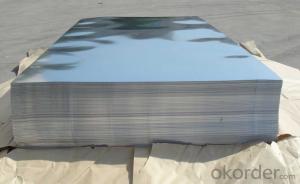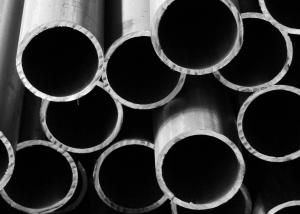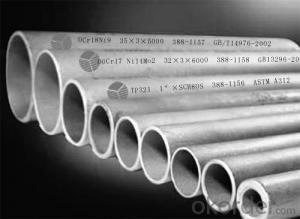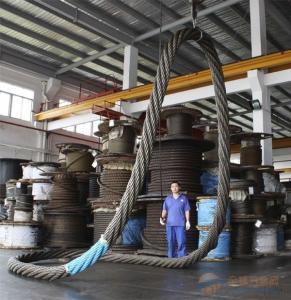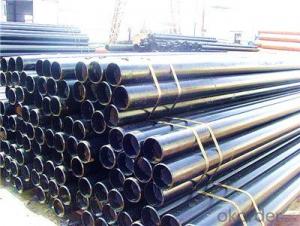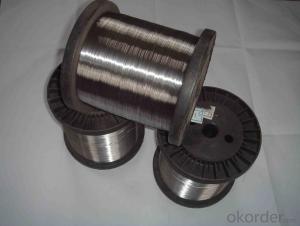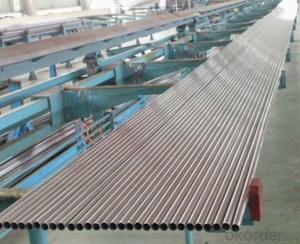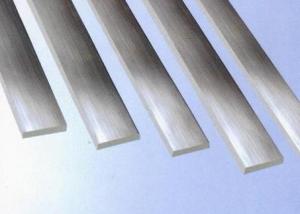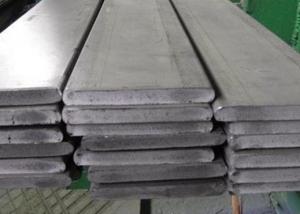Stainless Duplex Seamless Steel Pipe High Nicke 31803
- Loading Port:
- Ningbo
- Payment Terms:
- TT OR LC
- Min Order Qty:
- 1 m.t.
- Supply Capability:
- 5000 m.t./month
OKorder Service Pledge
OKorder Financial Service
You Might Also Like
1、Structure of Duplex steel A790 31803 seamless pipe Description:
Stainless steel is a production which not easy rust,acid resistance and corrosion resistance,so it is widely used in light industry,heavy industry,daily necessities and the decoration industry.my company long-term supply stainless steel porducts including:stainless steel sheet,stainless steel coil and stainless steel tube.
2、Main Features of Duplex steel A790 31803 seamless pipe:
• High manufacturing accuracy
• High strength
• Small inertia resistance
• Strong heat dissipation ability
• Good visual effect
•Reasonable price
3、Duplex steel A790 31803 seamless pipe Images:
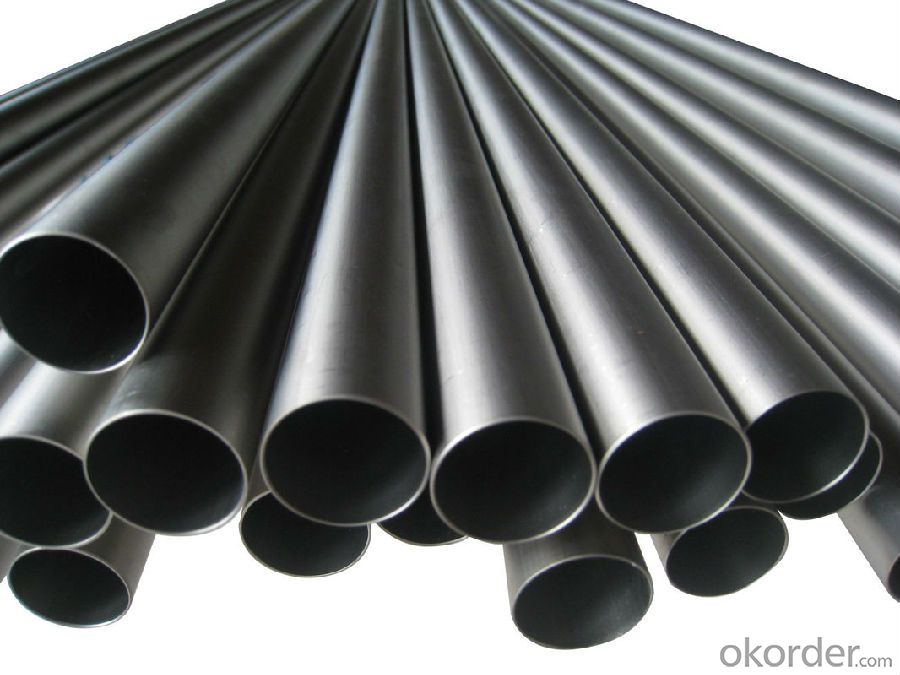
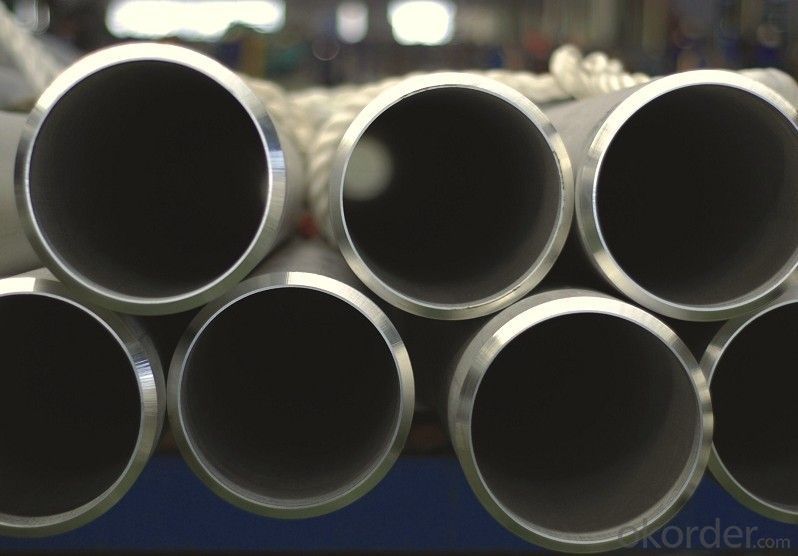
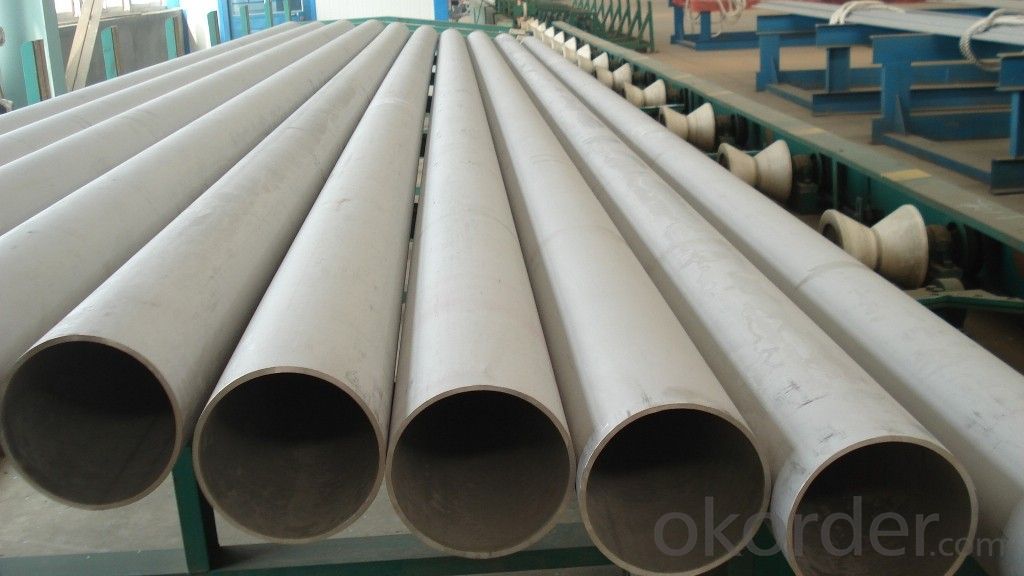
4、Duplex steel A790 31803 seamless pipe Specification:
1. Process: Cold Rolling/ Cold Drawn
2. Size: 10mm-480mm
3. Standards: ASTM A312, ASTM A213, ASTM A269, DIN 2462, JIS G3463
4. Schedules:1mm-30mm
5. Material: TP304, TP304L, TP316L, TP321, TP317L, TP310S, TP347H, duplex steel
6.Surface Treatment: polishing, sand blasting,annealing and acid pickling
7.Package: export package (weaving bag ,non-fabric ,wooden case)
| process | size | standard | schecules | material | surface | package |
cold drawn/ cold rolling | 10-480mm | A312 A213 A269 etc. | 1-30mm | 304/321/316 310/317/347 duplex steel
| polishing annealing and pickling
| weaving bag in bundle plywood case |
5、FAQ of Duplex steel A790 31803 seamless pipe:
①How is the quality of your products?
Our products are manufactured strictly according to national and internaional standard, and we take a test
on every pipe before delivered out. If you want see our quality certifications and all kinds of testing report, please just ask us for it.
Guaranteed: If products’ quality don’t accord to discription as we give or the promise before you place order, we promise 100% refund.
②How about price?
Yes, we are factory and be able to give you lowest price below market one, and we have a policy that “ for saving time and absolutely honest business attitude, we quote as lowest as possible for any customer, and discount can be given according to quantity”,if you like bargain and factory price is not low enough as you think, just don’t waste your time.Please trust the quotation we would give you, it is professional one.
③Why should you chose us?
Chose happens because of quality, then price, We can give you both.Additionally, we can also offer professional products inquiry, products knowledge train(for agents), smooth goods delivery, exellent customer solution proposals.Our service formula: good quality+good price+good service=customer’s trust
SGS test is available, customer inspection before shipping is welcome, third party inspection is no problem.
Any question, pls feel free to contact us !
- Q: What is the difference between 304H and 304 stainless steel pipes?
- The main difference between 304H and 304 stainless steel pipes lies in their carbon content. While both grades are variants of the 304 stainless steel alloy, 304H contains a higher carbon content compared to 304. This higher carbon content allows 304H to be used in higher temperature applications, as it provides improved high-temperature strength and resistance to sensitization. In contrast, 304 stainless steel pipes are more suitable for general-purpose applications, as they offer good corrosion resistance and are commonly used in a wide range of industries. Therefore, the choice between 304H and 304 stainless steel pipes depends on the specific requirements of the application, particularly the operating temperature and the need for enhanced strength and resistance to sensitization.
- Q: What are the specifications for stainless steel pipes?
- The specifications for stainless steel pipes typically include the material grade, dimensions (such as outer diameter, wall thickness, and length), and specific standards or certifications they adhere to, such as ASTM, ASME, or EN. Additionally, specifications may also include information about the surface finish, type of joint or connection, and any special requirements for corrosion resistance or mechanical properties.
- Q: Can stainless steel pipes be insulated with polyetherimide?
- Yes, stainless steel pipes can be insulated with polyetherimide. Polyetherimide is a high-performance thermoplastic material that can withstand high temperatures and is known for its excellent thermal insulation properties. It can be used as an effective insulation material for stainless steel pipes, providing thermal protection and preventing heat loss or gain.
- Q: Can stainless steel pipes be used in the agriculture industry?
- Yes, stainless steel pipes can be used in the agriculture industry. Stainless steel pipes are highly resistant to corrosion, making them ideal for agricultural applications where exposure to moisture, chemicals, and other corrosive substances is common. They are commonly used for irrigation systems, water supply lines, and various agricultural processes that require durable and long-lasting piping solutions. Additionally, stainless steel pipes are hygienic, easy to clean, and can withstand high temperatures, making them suitable for agricultural processes that involve food production and processing.
- Q: Are stainless steel pipes suitable for high-temperature steam?
- Yes, stainless steel pipes are suitable for high-temperature steam. Stainless steel is known for its excellent heat and corrosion resistance, making it an ideal material for applications involving high temperatures and steam. The high chromium and nickel content in stainless steel helps it withstand the corrosive effects of steam, preventing oxidation and maintaining its structural integrity. Additionally, stainless steel pipes have high strength and durability, ensuring they can handle the pressure and stress caused by high-temperature steam. Overall, stainless steel pipes offer a reliable and long-lasting solution for transporting high-temperature steam in various industries such as power generation, chemical processing, and oil and gas.
- Q: Are stainless steel pipes resistant to scaling and oxidation?
- Yes, stainless steel pipes are highly resistant to scaling and oxidation. This is due to the presence of a protective layer of chromium oxide on the surface of stainless steel. This layer acts as a barrier, preventing the metal underneath from coming into contact with oxygen and other elements that may cause scaling and oxidation. As a result, stainless steel pipes are able to withstand high temperatures, corrosive environments, and frequent exposure to water without deteriorating or rusting. This makes them an excellent choice for various applications, such as in the construction, chemical, and food processing industries, where resistance to scaling and oxidation is crucial.
- Q: Are stainless steel pipes suitable for sanitary applications?
- Stainless steel pipes are indeed a great fit for sanitary purposes. The remarkable corrosion resistance, durability, and hygienic qualities of stainless steel make it the perfect option for settings that call for cleanliness and sanitation, like food processing plants, pharmaceutical facilities, and hospitals. It's worth mentioning that stainless steel pipes are non-porous, meaning they don't absorb or retain bacteria, contaminants, or odors. Moreover, they are effortless to clean and maintain, ensuring the utmost level of hygiene. Furthermore, stainless steel pipes can endure high temperatures and pressures, making them well-suited for a vast array of sanitary applications.
- Q: What is the difference between seamless and seamless annealed stainless steel pipes?
- The main difference between seamless and seamless annealed stainless steel pipes lies in their manufacturing process and the resulting properties of the pipes. Seamless stainless steel pipes are manufactured by piercing a hot billet or a solid bar to form a hollow cylindrical shape. This process eliminates the need for welding or any other joints, resulting in a uniform and continuous pipe with no seams. Seamless pipes are known for their excellent strength and ability to withstand high pressures, making them suitable for various applications in industries such as oil and gas, petrochemical, and construction. On the other hand, seamless annealed stainless steel pipes go through an additional heat treatment process called annealing. Annealing involves heating the pipe to a specific temperature, holding it at that temperature for a certain duration, and then cooling it slowly. This heat treatment helps to relieve internal stresses, reduce hardness, improve ductility, and enhance the overall mechanical properties of the stainless steel pipe. The annealing process also leads to the formation of a more homogenous microstructure, which further improves the corrosion resistance of the stainless steel. This makes seamless annealed stainless steel pipes particularly suitable for applications where excellent corrosion resistance is required, such as in the chemical processing, pharmaceutical, and food and beverage industries. In summary, while both seamless and seamless annealed stainless steel pipes are produced without any seams, the additional annealing process in the latter enhances its mechanical properties and corrosion resistance, making it more suitable for certain industries and applications.
- Q: Can stainless steel pipes be insulated with polyethylene-terephthalate glycol?
- No, stainless steel pipes cannot be insulated with polyethylene-terephthalate glycol.
- Q: How do stainless steel pipes perform in extreme weather conditions?
- Stainless steel pipes are renowned for their remarkable performance and durability in severe weather conditions. With their unique composition, stainless steel pipes possess a remarkable resistance to corrosion, rendering them ideal for usage in diverse environments, including extreme weather conditions. When faced with severely cold weather, stainless steel pipes retain their strength and flexibility, unlike other materials that may become brittle or crack. This characteristic makes them suitable for applications like oil and gas pipelines, where they can endure low temperatures without compromising their performance. Similarly, in excessively hot weather, stainless steel pipes exhibit exceptional heat resistance, preventing warping or deformation. This quality is of utmost importance in industries such as power generation, where high-temperature surroundings are prevalent. Moreover, stainless steel pipes boast a high melting point, enabling them to maintain their structural integrity even in the presence of intense heat. This renders them resistant to fire damage, guaranteeing a safe choice for applications requiring fire protection. Stainless steel pipes also possess outstanding resistance to damaging UV radiation over time. This attribute ensures that the pipes do not degrade or weaken when exposed to direct sunlight or extreme weather conditions, proving their suitability for outdoor applications. Furthermore, stainless steel pipes demonstrate excellent mechanical properties, including high tensile strength and impact resistance. These qualities enable them to endure extreme weather conditions such as high winds, heavy storms, and seismic activities without experiencing any structural failures. In conclusion, stainless steel pipes are highly dependable and perform exceptionally well in extreme weather conditions. Their resistance to corrosion, high and low temperatures, UV radiation, and mechanical stress make them the preferred choice for various industries, ensuring reliable and long-lasting performance even in the harshest environments.
Send your message to us
Stainless Duplex Seamless Steel Pipe High Nicke 31803
- Loading Port:
- Ningbo
- Payment Terms:
- TT OR LC
- Min Order Qty:
- 1 m.t.
- Supply Capability:
- 5000 m.t./month
OKorder Service Pledge
OKorder Financial Service
Similar products
Hot products
Hot Searches
Related keywords
